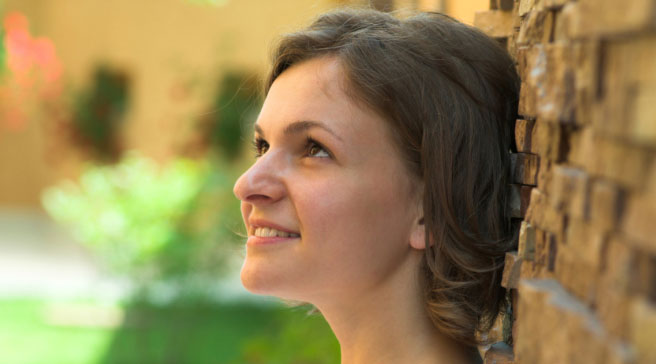What is mindfulness?
Perri Lewis went along to the first of Psychologies’ autumn events at The School of Life to find out

I’ve never meditated before. I just can’t sit still for long enough. Or stop thinking for long enough. The second I stop rushing about my mind wanders; planning, thinking, making decisions.
But last night, at the first of Psychologies' autumn events, I reckon I got close to it. Not entirely there, but close. There was a moment, a second or two, when the only thing I was aware of was my breathing and the way my body felt sitting in my chair. Professor Mark Williams is an excellent leader, and clearly the only reason I was able to steal a few seconds of peace.
A professor of Clinical Psychology and Wellcome Principal Research Fellow at the University of Oxford, he knows everything there is to know about mindfulness. And he explains it so very well. A few minutes in to the session at The School of Life, you just know that everyone gets what it’s about. He explains: “Being mindful is knowing and being aware of the internal and external world, in the here and now. Waking up to life as it is right now. Noticing your thoughts, senses, tastes, feelings — moment by moment. It’s knowing that you’re remembering, not just reliving the past. Knowing that you’re planning, not just pre-living the future.”
He reels off the benefits; it aids depression (just as much as anti-depressants, as many studies have proven), can help people manage pain, is a brilliant stress and anxiety reliever, can help phobias and much, much more. He’s very affable, and funny too.
When he asks the audience — there’s about 30 of us — no one is afraid to speak up or ask questions. The atmosphere is relaxed and encouraging. When we break for a glass of wine, I notice people easily slip into conversation with the others. I learn a lot. That animals have learnt to switch off their emotions, but we rarely do. That ‘context-dependent memory’ is the reason why some people have recurring bouts of depression (mood can act as a context, and when people feel low, this can bring back all the bad memories of the last time they were depressed). That I should be curious about tiredness (apparently we should think about how our body feels when we’re tired, and be interested in it rather than negative about it).
There’s plenty of practical information too. Beginners should learn to meditate in a quiet place before trying to do it on the tube. That one of the best ways to do it is to sit on a chair with the back legs raised by books (it makes our spine straighter, which communicates positive feelings about ourselves to our brain). And, perhaps most importantly, that you shouldn’t beat yourself up if your mind wanders. That all you need to do is recognise that it has wandered, and slowly come back to focusing on your breathing again. And repeat again, and again if necessary.
This morning I had a go at this mindfulness malarkey. As my alarm went off I tried to be curious about my weariness rather than freak out that I had to get up. I can’t say it changed anything — I was still groggy and a little disappointed about having to get out of bed — but I liked noticing how my body felt, which parts ached, which parts were warm. I noticed how soft my sheets were, and how cold it was when a foot slipped out from under the duvet. I might not be anywhere near full-blown meditation just yet, but I liked the feeling. I’ll keep trying though, and report back.
For more information visit theschooloflife.com or bemindful.co.uk








